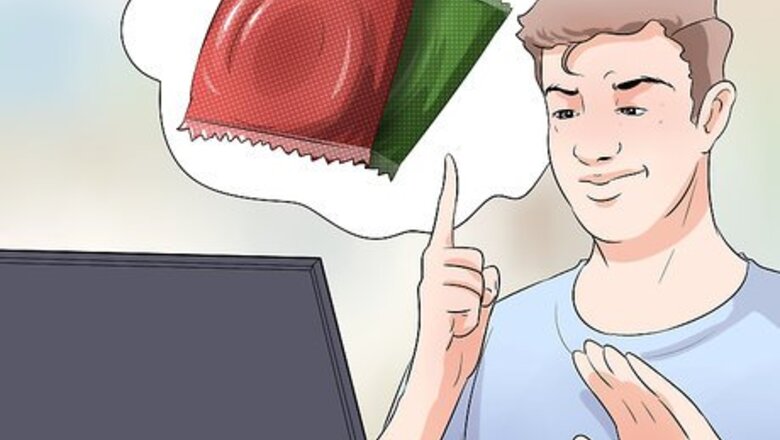
views
X
Trustworthy Source
Centers for Disease Control and Prevention
Main public health institute for the US, run by the Dept. of Health and Human Services
Go to source
You may be able to obtain free condoms online and from places such as schools, pharmacies, health clinics, and OB/GYN offices.
Finding Free Condoms Near You
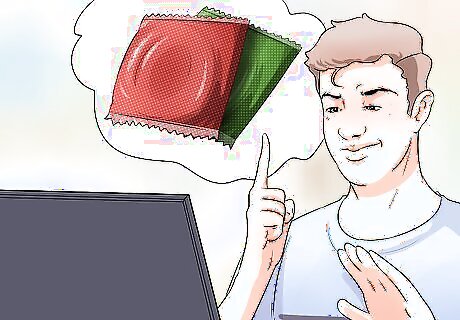
Use online databases of free condom distribution points. Which online database you use will depend on your location. Many are also very clear about what measures they use to protect anonymity. In the US, websites like condomfinder.org will enable you to find local organizations and businesses that distribute condoms for free. In England, the National Health Service maintains a searchable database of locations that distribute condoms. You can use it to find a distributor near you.
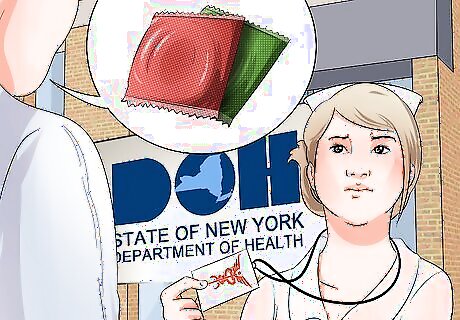
Check with your local department of health. If your department of health is distributing them, help yourself to a bunch so you will always be prepared! For example, New York City and the District of Columbia have large scale distribution programs. In places where large scale distribution programs are underway, free condoms may be available in local pharmacies, drugstores, or even grocery stores.
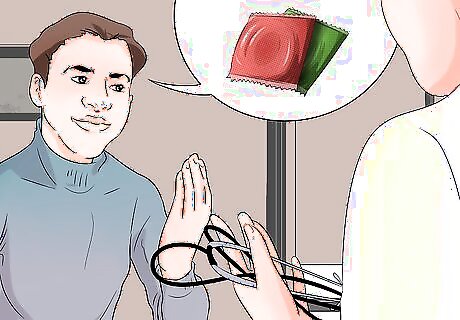
Ask your doctor. Some physicians may give out free condoms. If you are a minor concerned about confidentiality, ask your doctor what his or her policy is. You can ask whether the information would be kept confidential from your parents.

Try health clinics, particularly those that focus on sexual or reproductive health. These organizations often offer condoms free of charge. You can call them ahead of time to ask if they are currently distributing. Possible sources include health clinics, gynecologists’ offices, and hospitals. Planned Parenthood in the US often offers free condoms. For example, in Oregon you can drop in and receive 12 free condoms. It is confidential, even for minors.

Check with your university health center. Many universities, both public and private, distribute free condoms to students in ways that are anonymous. The health center website will likely tell you exactly what is available, where you can get it and when it is available. You can also call the health center or drop by and ask. Chances are, you will be able to anonymously get more than enough condoms with no questions asked.

Know what the sexual health resources are at your high school. High schools increasingly distribute condoms to students. High schools may make condoms available anonymously through vending machines or freely available in bowls or baskets. In other schools, students may need to obtain them from the school nurse, a counselor, health worker, or other personnel. Some schools have programs with where parents may decide whether these services will be available to their teen.
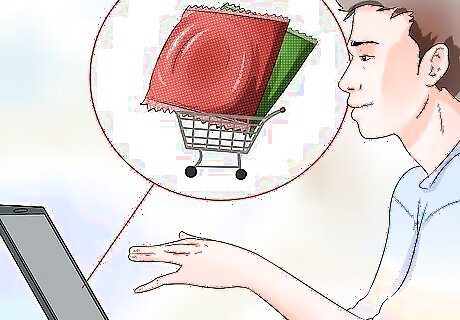
Order free condoms online and let the condoms come to you. Depending upon where you live, these services may even be available to you as a teen. Check the websites of organizations like TeenSource.org or LAcondom.com. Check the expiration date and do not use expired condoms. They are less reliable. As always, check the condom for tears or pinprick holes.
Using the Condom Correctly
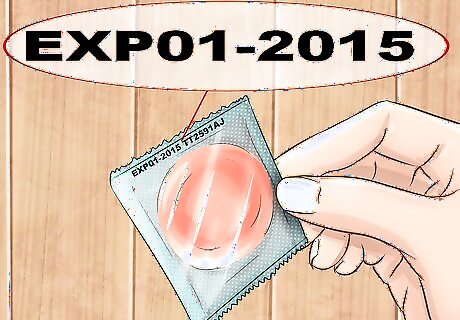
Check the condom to make sure it is still good. Condoms do not last forever. Make sure the expiration date has not passed. Never used a condom after its expiration date. Examine the condom to make sure it is still intact. If it has small tears or stiff patches, get a new one.
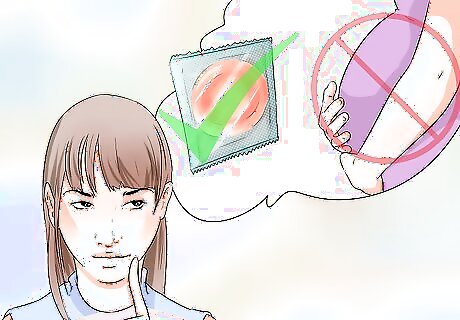
Reduce the likelihood of pregnancy and disease by using a condom during vaginal, anal, and oral sex. To be effective, the condom must be used during all times of genital contact. Use lubrication to make sex more enjoyable and reduce the chances of the condom breaking. Use only water-based lubricants with a condom. Examples include Astroglide and K-Y jelly. Oil-based lubricants may break down the latex, increasing the chances of the condom breaking. Don’t use body or massage oils, vaseline, or cooking oils as lubricants.
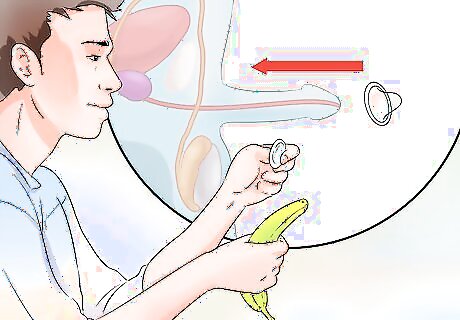
Put the condom on the penis when it is erect. If you start to put the condom on inside out, don’t turn it around and start again. Use a new condom. Make sure to use a condom for the entire sexual encounter. Start with the rolled up condom at the tip of the penis. The rolled side should be out. Pinch the tip of the condom and hold it in place while you unroll the condom until it covers the entire length of the penis. There should be about a half an inch of space at the tip to catch semen during ejaculation. If you are unfamiliar with how to properly put on a condom, practice on a banana or a model penis.
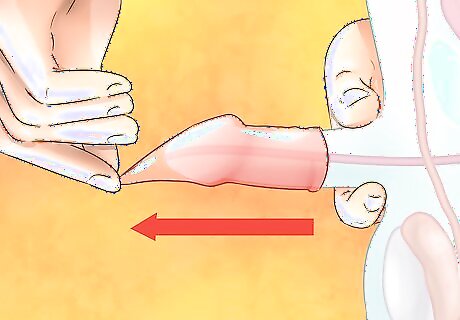
Take the condom off while the penis is still erect. Hold the base of the penis while you gently and carefully remove the condom. Do not spill the semen inside the condom. Dispose of the condom in the trash.
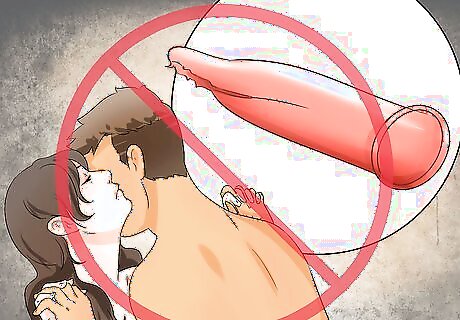
Stop sex and put on a new condom if it breaks in the middle. A broken condom does not offer protection.
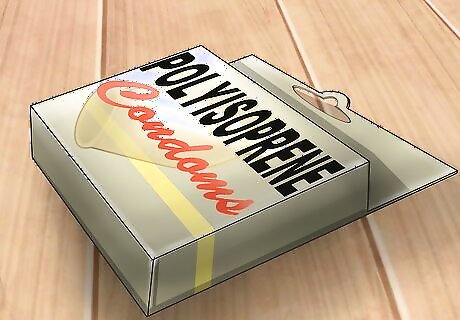
Use a polyurethane or polyisoprene condom if you are allergic to latex. Don’t use a lambskin condom. It won’t protect against sexually transmitted diseases as well as latex or polyurethane. A latex allergy is the only reason that a doctor will tell you not to use a latex condom. There are no other health considerations or concerns that would indicate that you should not use one during a sexual encounter.
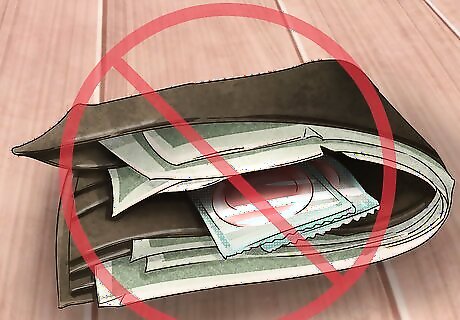
Make sure your condoms will last until the expiration date. Keep them in a place where they won’t be exposed to heat, sunlight or physical stress. These conditions can weaken the condoms. Don’t carry condoms in your wallet or pants pocket. The friction and bending will weaken the condoms. This will make them more likely to break or get small holes. Glove compartments of cars get too hot to safely store condoms.

















Comments
0 comment